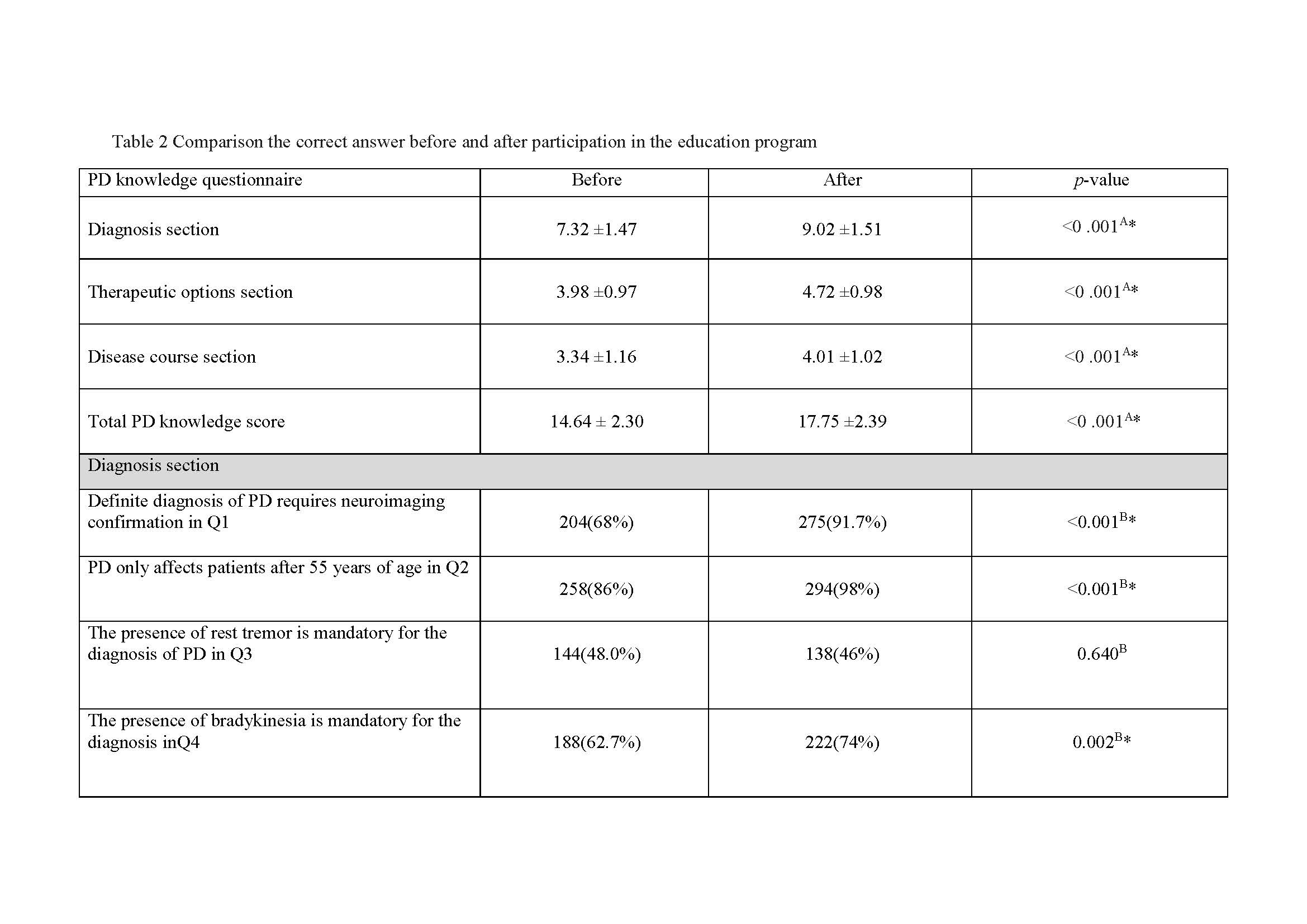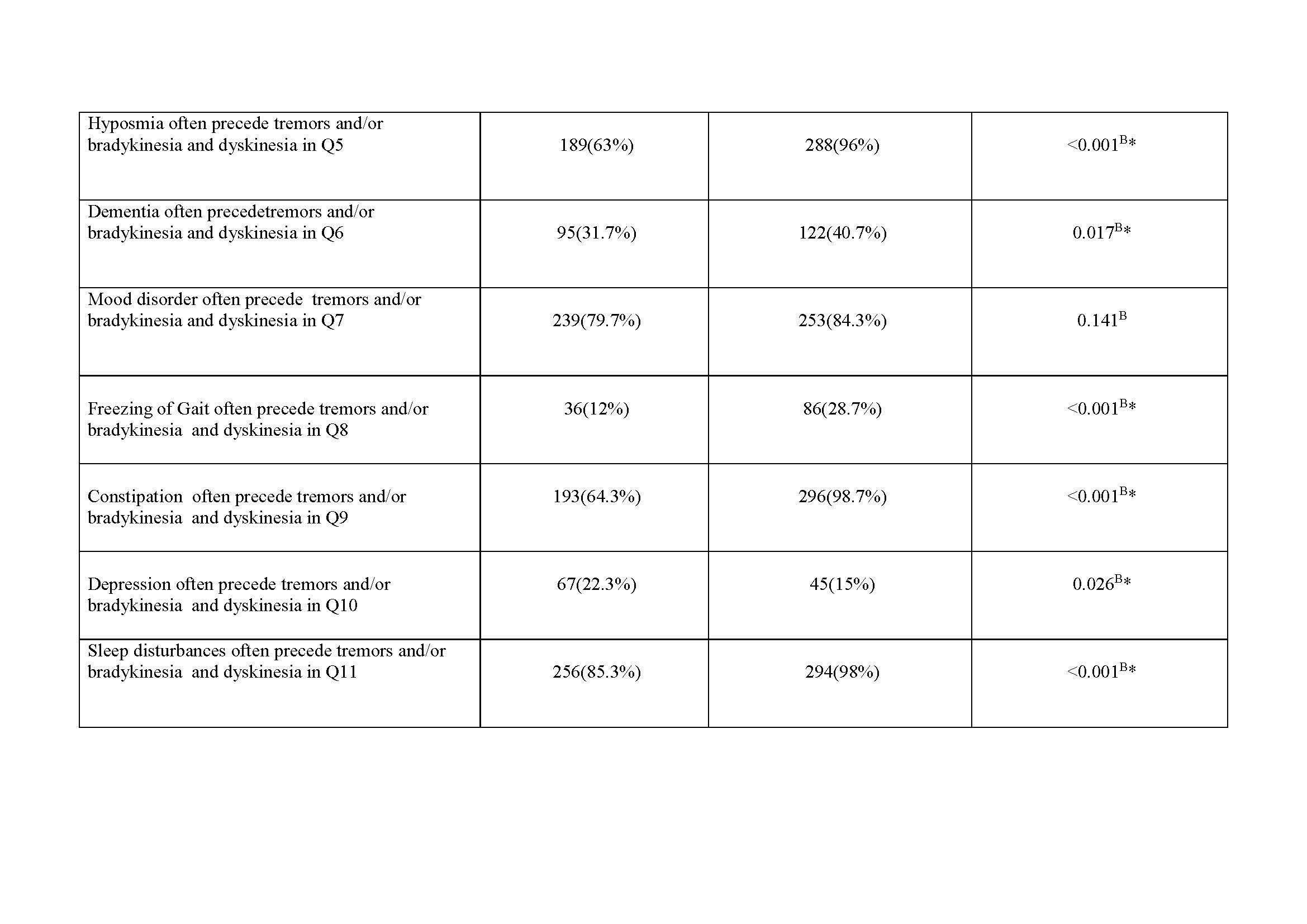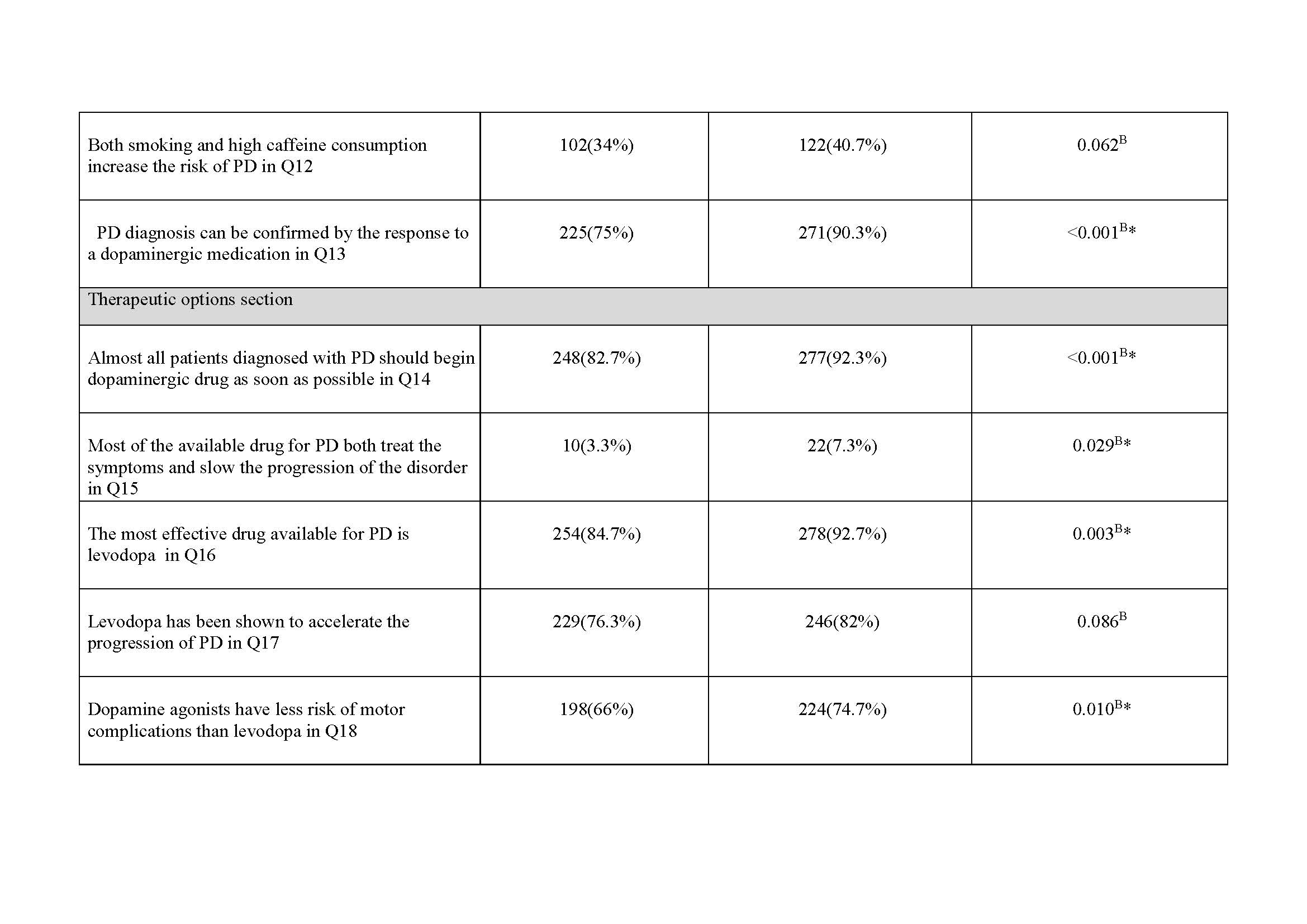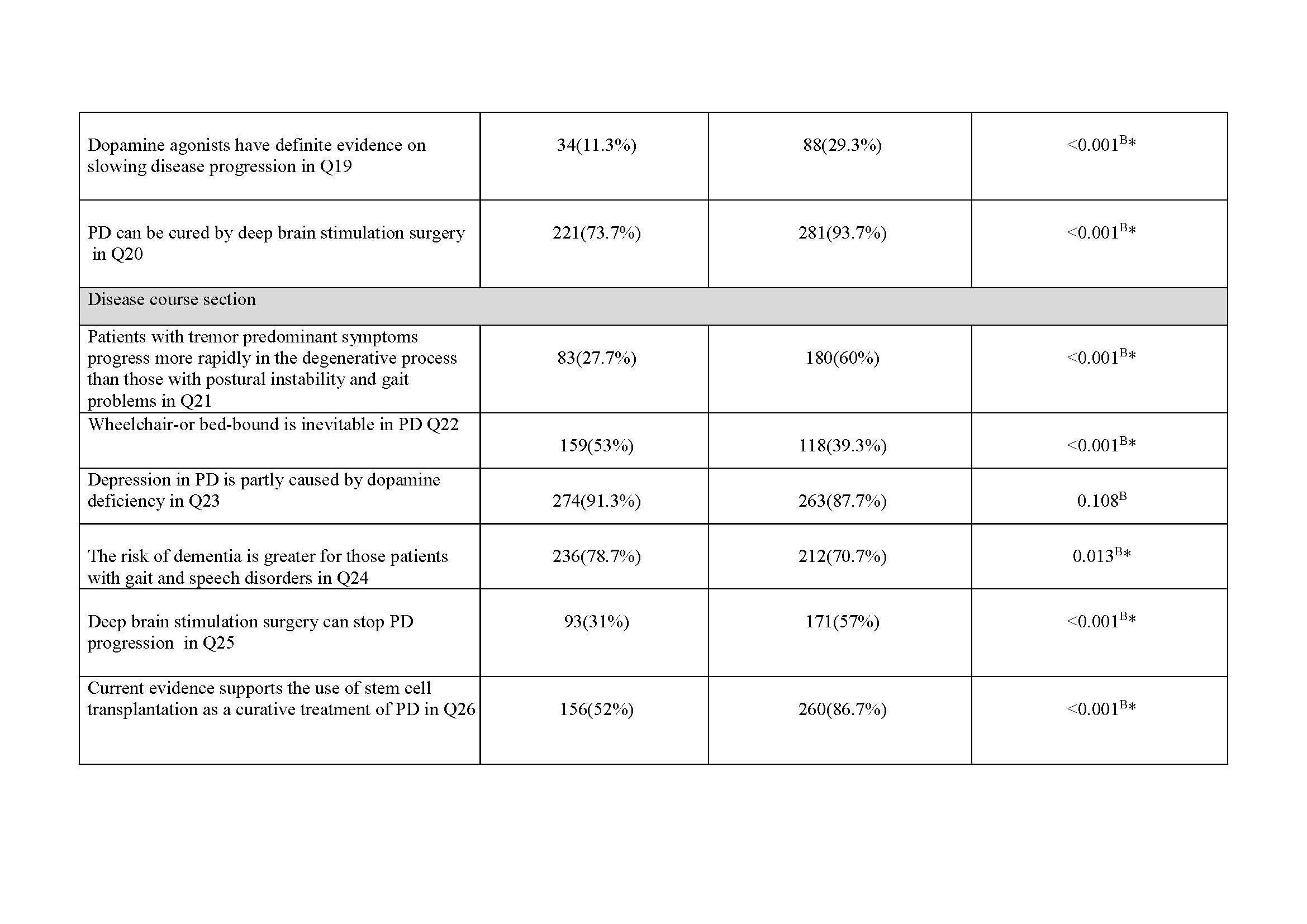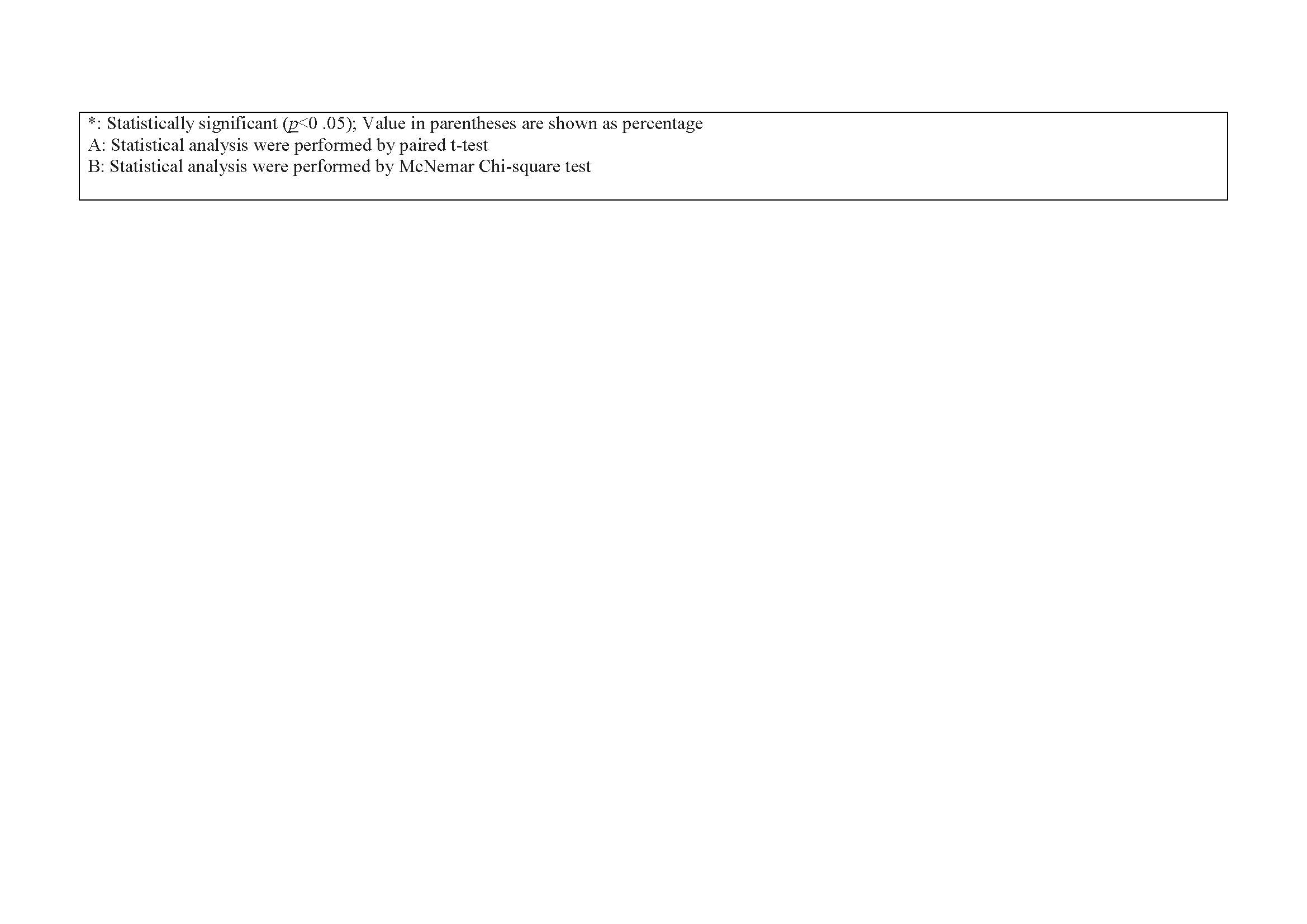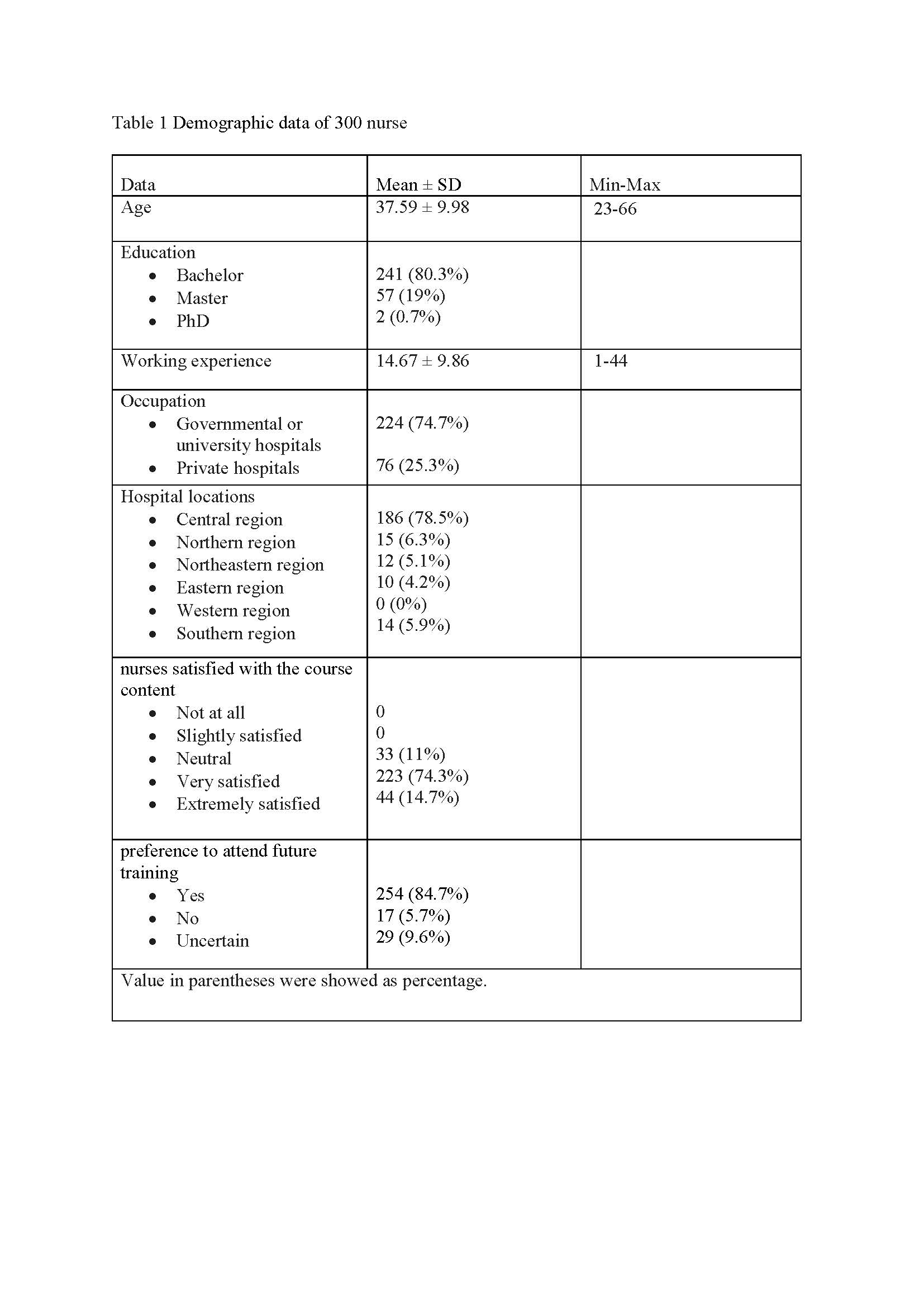Session Information
Date: Sunday, October 7, 2018
Session Title: Phenomenology and Clinical Assessment Of Movement Disorders
Session Time: 1:45pm-3:15pm
Location: Hall 3FG
Objective: To evaluate the level of general PD knowledge among the nursing community and to determine the impact of a PD educational program on their specialist knowledge using a validated PD knowledge questionnaire.
Background: Nurses play a vital role in the management of PD as they provide education, training and support to patients, and are available for consultation when problems arise. A lack of adequate specialist knowledge among nurses poses a barrier to the appropriate treatment and care of Parkinson’s disease (PD) patients.
Methods: A cross-sectional, questionnaire-based, pre-and post-test study design was conducted on 300 Thai nurses who attended a 2-day educational program on PD in 2016. The development of this educational program followed the format of basic movement disorder course of the Movement Disorder Society (MDS), but the contents were modified to comply with nurse training curriculum. A validated PD knowledge questionnaire, consisting of three sections on diagnosis sections (13 items), therapeutic options section (7 items), and disease course section (6 items) was implemented at the beginning of the course and after course completion (1,2). Higher score indicates better knowledge on PD. All demographic data and knowledge score of participants were included into the analysis.
Results: All participants were registered nurses in Thailand with a mean age of 37.59 years (9.98), and a mean working experience of 14.67 (9.86) years. The majority (74.7%) worked in the governmental or university hospitals located in the central region of Thailand (78.5%). The mean pre-test scores were diagnosis section 7.32 (1.47), therapeutic options section 3.98 (0.97), and disease course section 3.34 (1.16), with a total score of 14.64 (2.30). After the course completion, a significant higher level of PD knowledge were demonstrated in all sections, (p< 0.001, each), with a total score of 17.75 (2.39). More than 80 % of nurses satisfied with the course contents and indicate their preference to attend future training.
Conclusions: The results of this study confirmed that general nurses’ knowledge about PD diagnosis, disease symptomatology and therapeutic options is limited with significant knowledge gaps identified in all three aspects of the questionnaire, but that a short educational program can improve knowledge and understanding of the disease. Development of educational programs to improve PD knowledge amongst nurses is important and longitudinal well-designed studies are needed to evaluate if better knowledge leads to better patient care and well-being.
References: 1. Bhidayasiri R, Brenden N, Viwattanakulvanid P, Jitkritsadakul O, Tabucanon R, Jagota P, et al., Identifying gaps in knowledge about Parkinson disease among medical professionals in Thailand. Neurology 2014; 82(24):2238–40. 2. Jitkritsadakul O, Boonrod N, Bhidayasiri R. Knowledge, attitudes and perceptions of Parkinson’s disease: A cross-sectional survey of Asian patients. J Neurol Sci 2017;374:69-74.
To cite this abstract in AMA style:
S. Phumphid, O. Jitkritsadakul, R. Bhidayasiri. Evaluating the impact of the educational course for nurses on Parkinson’s disease: A model for continuing nursing education [abstract]. Mov Disord. 2018; 33 (suppl 2). https://www.mdsabstracts.org/abstract/evaluating-the-impact-of-the-educational-course-for-nurses-on-parkinsons-disease-a-model-for-continuing-nursing-education/. Accessed February 28, 2026.« Back to 2018 International Congress
MDS Abstracts - https://www.mdsabstracts.org/abstract/evaluating-the-impact-of-the-educational-course-for-nurses-on-parkinsons-disease-a-model-for-continuing-nursing-education/

